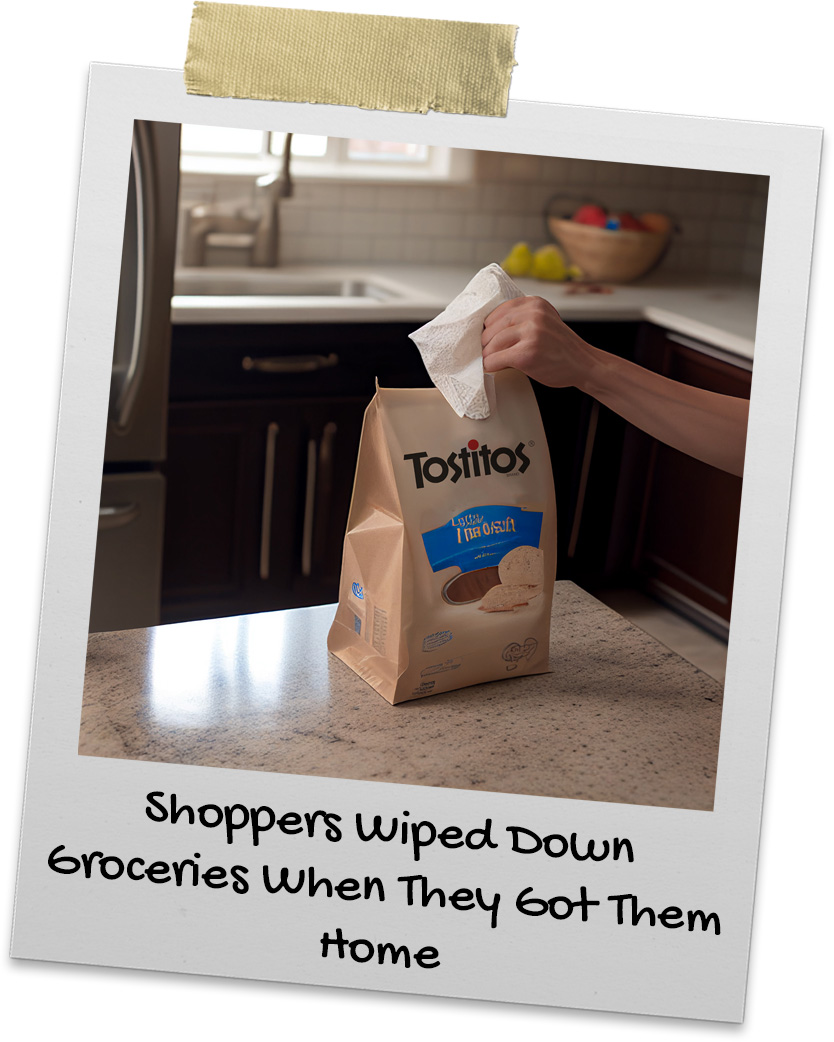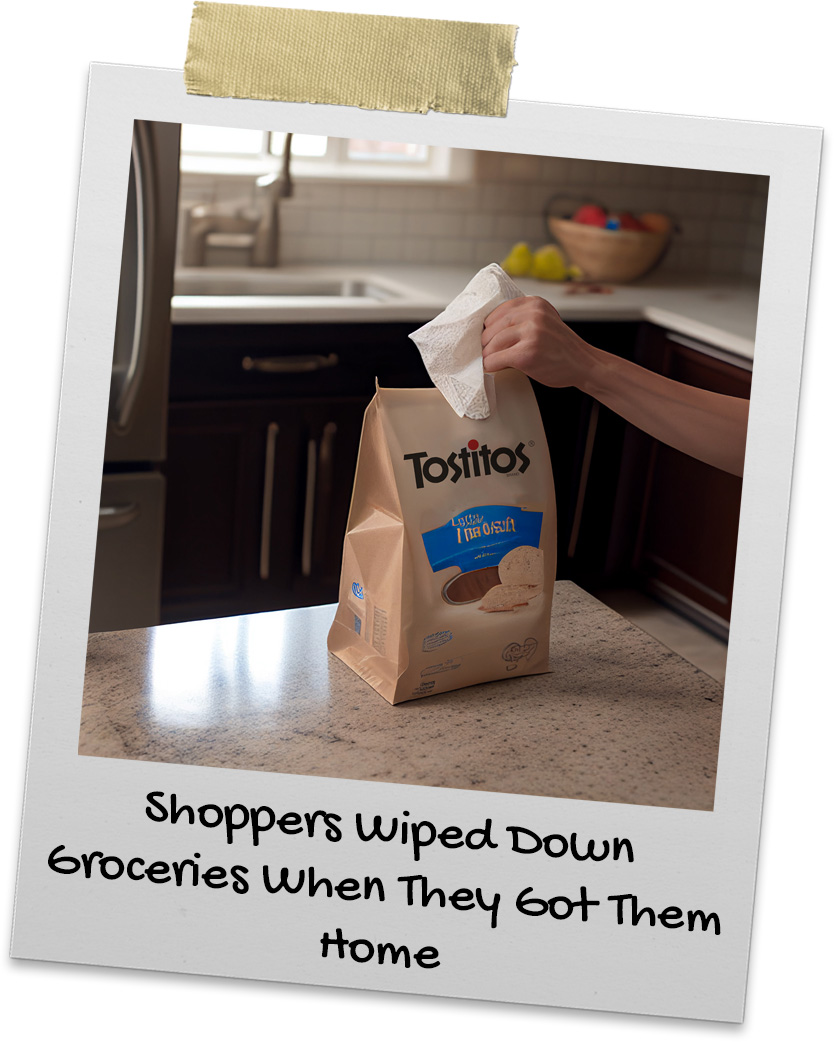Shoppers Wiped Down Groceries When They Got Them Home


When some people got their groceries home from the store, the battle was just beginning. There was a huge trend in the beginning months of the pandemic where people would let their groceries sit on the counter (or outside on the porch for deliveries). Then, they wiped down the groceries individually with disinfectant spray or wipes.
To be fair to everybody, at the very beginning, there were a tremendous number of theories and much speculation about how the disease was spreading and what could be done to slow down the transmission.
In late March, the worry about the transmission of the virus through surfaces arose following research published in the esteemed New England Journal of Medicine. The study indicated that the coronavirus could possibly survive on cardboard for a maximum of 24 hours and on metal and plastic for two to three days, but only in a laboratory-controlled environment. However, this research did not consider external factors such as sunlight or temperatures outside the lab setting that could potentially inactivate the virus. It also didn't study what would happen if the packaging was wiped down with cleaning agents. Moreover, the study did not factor in the minimum amount of the virus required to transmit it to another person, solely stating the virus's ability to survive.
However, the damage had already been done. People were paranoid about bringing items into their home that could potentially get their family sick. They wiped down their groceries before putting them away, as an attempt to keep their family safe.
It reached such a wide fervor that the FDA felt compelled to chime in and tweeted the following on April 16, 2020:
FDA has heard your concerns about shopping for #food safely. We want to assure you there is currently NO evidence of human or animal food or food packaging being associated with transmission of the #COVID19.
This confirmed to a lot of people that it might be time to reconsider the practice, especially if the extra effort was causing stress, as there was no real risk of getting COVID-19 from the groceries, whether they wiped down the packages or not.



